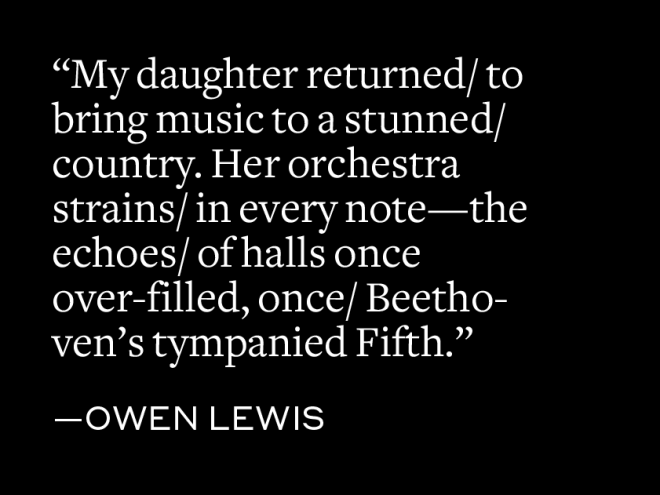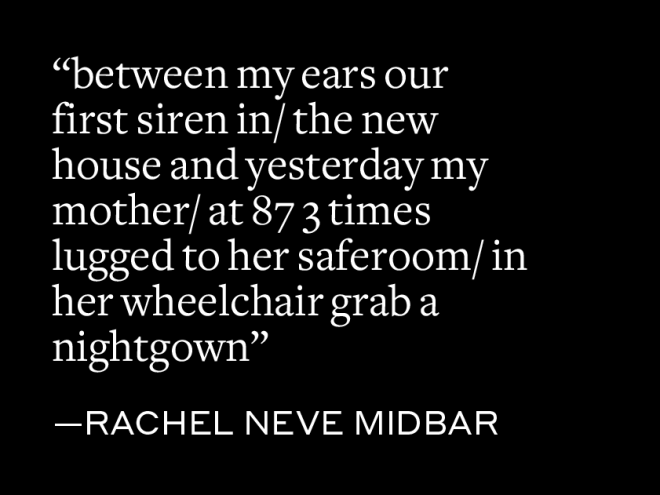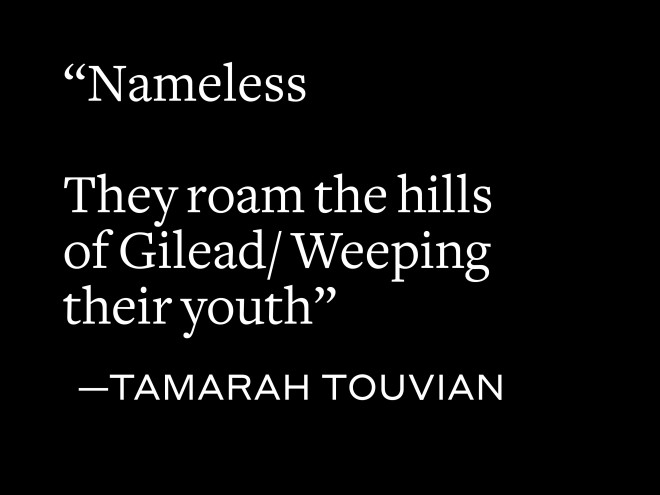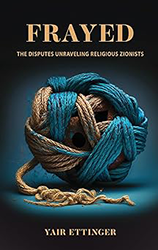At the heart of Owen Lewis’s new poetry collection, A Prayer of Six Wings, is the dilemma faced by Jews around the world today: how do we live our lives in the face of the ongoing crisis in the Middle East, with all of its ramifications, including the way it’s fueling antisemitism? For Lewis, the dilemma is exacerbated by the concern he feels for his daughter and her family, who live in Tel Aviv.
In one of the poems at the beginning of the collection, “In the Van to JFK,” Lewis writes about taking his daughter and her family to the airport, en route to Israel. It begins with a seemingly simple line that underlies his concern: The van rides on suspended judgment. The poem continues:
The pot-holes shake loose my worries
for Victoria and Hezi (his arm across
my shoulders to comfort me), the young
Noa and Kobi, a paraphernalia caravan
of an exodus – strollers, car seats, bags…
By the end of the poem, his daughter, a violinist, is back in Israel, rehearsing a Tchaikovsky piece. The poet wants to know where the conductor is sending the musical notes – as if to ask, is there someone who will listen and hear the urgency of the music?
The apparent simplicity of most of Lewis’s poems allows the narratives to stand out, and for the reader to sense the fear and complexity of the moment. In “Two Thousand Pound Bombs Drop…,” Lewis writes about the excruciating hardship being endured by the people in both Israel and Gaza. The Israelis want the hostages to be released, and the Gazans want peace. They are neighbors, caught up in an unfortunate situation that is beyond their control, yet both peoples are united in their prayers for mercy:
Mothers look for us, called by the name yamma, calling
the name imma. Our Father of mercy, not the god
of sacrifice. Our many crying heads explode.
It’s worth noting that nowhere in the book does Lewis apparently question his faith in Israel or Judaism. He often cites traditional liturgy, customs, and sources like the Bible, giving his poems a rich historical context. In “Rosh Hashanah Seder, 2024,” the poet observes his son-in-law presiding over a Mizrahi tradition, with all of its symbols and pleas for hope, and ends the poem with his own prayer for security:
Surely like Ephraim and Manasseh…
May G‑d preserve the strength of this
young father, holding his family dear.
A Prayer of Six Wings is an ambitious collection. It captures the gamut of complicated feelings many people who are impacted by the crisis are experiencing – feelings that are wrapped up in religion, politics, history, and place. Ultimately, the book is a plea for faith in humanity – an idea that is captured at the end of the final poem in the collection, “Of Six Wings:”
It’s about wings–
the stretch of fingered feathers–
the lift-off toward the cirrus clouds
beyond all conceivable expanse.
Six wings to stir the heavenly sky
and let our prayer on six wings fly!
Stewart Florsheim’s poetry has been widely published in magazines and anthologies. He was the editor of Ghosts of the Holocaust, an anthology of poetry by children of Holocaust survivors (Wayne State University Press, 1989). He wrote the poetry chapbook, The Girl Eating Oysters (2River, 2004). In 2005, Stewart won the Blue Light Book Award for The Short Fall From Grace (Blue Light Press, 2006). His collection, A Split Second of Light, was published by Blue Light Press in 2011 and received an Honorable Mention in the San Francisco Book Festival, honoring the best books published in the Spring of 2011. Stewart’s new collection, Amusing the Angels, won the Blue Light Book Award in 2022.





